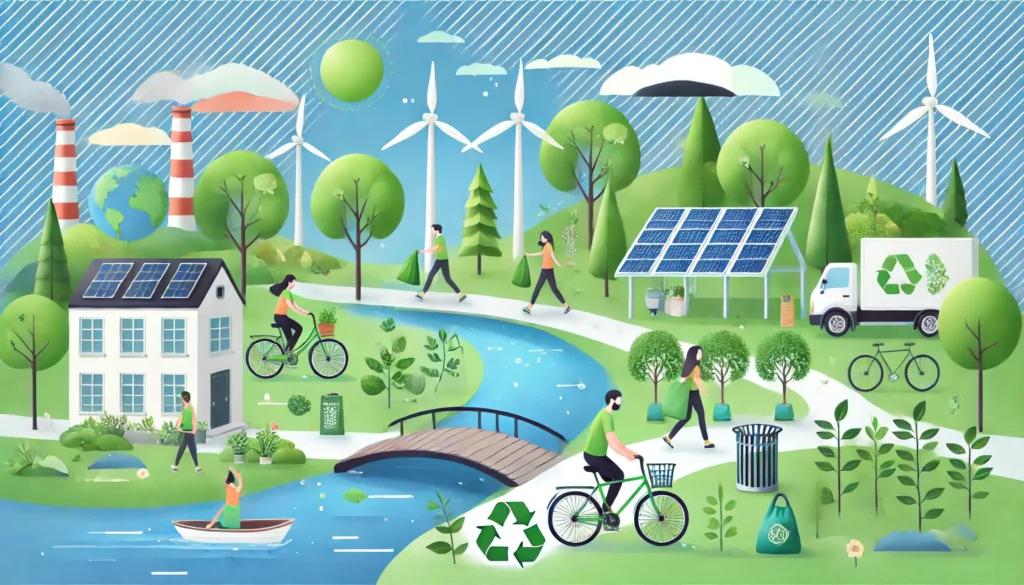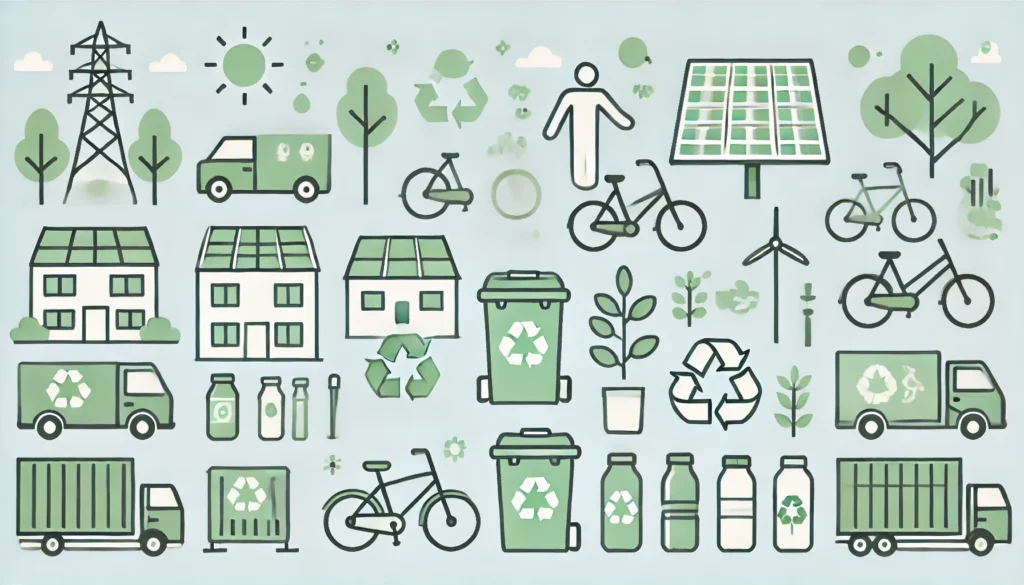Weddings are joyous occasions filled with love, family, and celebration. However, they can also generate significant waste, from single-use décor to excess food and energy consumption. Planning an eco-friendly wedding allows couples to celebrate their love while minimizing their environmental impact. This guide will walk you through the steps for planning a sustainable wedding, covering everything from eco-friendly venues and attire to green catering and zero-waste décor.
Why Choose an Eco-Friendly Wedding? 🌍
The global wedding industry is known for being resource-intensive, with large amounts of waste generated from food, decorations, and transportation. Here’s why planning a sustainable wedding matters:
- Environmental Impact: Traditional weddings often lead to high carbon emissions, food waste, and plastic pollution. By choosing eco-friendly alternatives, couples can reduce their wedding’s footprint.
- Cost Benefits: Many sustainable choices, such as digital invitations and reusable décor, can be cost-effective in the long run.
- Supporting Local and Ethical Businesses: By choosing eco-friendly vendors and products, you help promote businesses that prioritize the environment and fair practices.
Step-by-Step Guide to Planning an Eco-Friendly Wedding 📋
1. Choose a Sustainable Venue 🏞️
The location of your wedding plays a key role in determining its environmental impact. Opt for venues that prioritize sustainability:
- Outdoor Venues: Holding your ceremony in natural settings like gardens, beaches, or forests reduces the need for artificial lighting and air conditioning.
- Eco-Friendly Resorts: Some resorts and event spaces are certified green, with sustainable practices such as solar energy, waste reduction, and water conservation.
- Local Venues: Choosing a location close to most of your guests reduces transportation emissions.
Cost Benefit: Outdoor venues may require fewer decorations, saving you money on décor.
2. Send Eco-Friendly Invitations 📧
- Digital Invitations: Opt for e-invites or wedding websites instead of paper invitations. This not only saves paper but also cuts down on delivery emissions.
- Recycled Paper Invitations: If you prefer physical invites, choose recycled or seed paper, which can be planted after use.
Cost Benefit: Digital invitations are often more affordable than traditional paper invites, saving on both printing and postage.
3. Sustainable Wedding Attire 👗
The fashion industry is a major contributor to pollution, but you can make eco-conscious choices for your wedding attire:
- Rent or Reuse: Consider renting your wedding dress or suit, or repurposing a family heirloom.
- Sustainable Fabrics: If buying new, choose attire made from organic or sustainable materials like hemp, organic cotton, or bamboo.
- Support Ethical Brands: Many brands now specialize in ethical and eco-friendly wedding attire, ensuring fair labor practices.
Example: The bride can wear a dress made from organic silk, while the groom opts for a suit crafted from recycled materials.
4. Zero-Waste and Reusable Decorations 🎨
- Natural Décor: Use natural elements like flowers, plants, and wood to decorate your venue. Fresh flowers, especially locally sourced and in-season varieties, are biodegradable and add natural beauty.
- Reusable Items: Instead of single-use plastic or paper decorations, choose reusable items like glassware, cloth napkins, and linen tablecloths.
- DIY and Upcycled Décor: Get creative by upcycling items you already own or making your own decorations from sustainable materials.
Example: Replace plastic table centerpieces with potted plants or candles in glass jars.
5. Eco-Friendly Catering 🍽️
Weddings are notorious for food waste, but a few sustainable steps can make a huge difference:
- Locally Sourced Food: Choose a caterer that uses organic, locally sourced ingredients to reduce carbon emissions from transportation.
- Vegetarian or Vegan Menus: Consider a vegetarian or vegan menu, which has a lower environmental impact compared to meat-heavy options.
- Minimize Food Waste: Work with your caterer to estimate food portions accurately and donate any leftovers to local shelters or food banks.
Cost Benefit: Plant-based meals and local produce are often more affordable, reducing overall catering costs.
6. Eco-Friendly Favors 🎁
- Seed Packets or Plants: Instead of traditional wedding favors, give guests seed packets, potted plants, or reusable items like bamboo cutlery.
- Edible Favors: Opt for locally sourced, homemade treats packaged in eco-friendly containers like reusable glass jars.
Example: Guests can receive small jars of locally produced honey or handmade soap wrapped in biodegradable packaging.
7. Sustainable Transportation 🚗
Wedding transportation can contribute to a large portion of the event’s carbon footprint. Here’s how to reduce it:
- Carpool or Shuttle: Arrange carpools or group shuttles for guests to reduce individual car use.
- Electric Vehicles: Opt for electric or hybrid vehicles for the bride and groom’s transportation.
Cost Benefit: Group transportation often reduces the overall cost compared to multiple individual vehicles.
Advantages of Planning an Eco-Friendly Wedding 🌱
- Environmental Benefits: Eco-friendly weddings generate less waste, use fewer resources, and contribute to a lower carbon footprint.
- Unique and Personal Touch: Sustainable weddings often include DIY and upcycled elements, giving your event a unique, personalized feel.
- Support for Ethical Businesses: Choosing local, sustainable vendors and products supports eco-conscious businesses and promotes fair labor practices.
Disadvantages and Challenges 🌍
- Limited Options: Depending on your location, finding sustainable vendors and products may be more difficult or limited.
- Higher Initial Costs: Some eco-friendly options, such as organic fabrics or green-certified venues, may have higher upfront costs, though they offer long-term benefits.
- Logistical Complexity: Planning an eco-friendly wedding may require more research and coordination to ensure all elements align with your sustainability goals.
Celebrate Love While Protecting the Planet 💚
An eco-friendly wedding doesn’t mean sacrificing style or tradition—it means making thoughtful choices that minimize environmental impact. From sustainable venues to green catering and zero-waste decorations, every small effort adds up to create a wedding that’s as kind to the earth as it is to your guests. By planning ahead and embracing sustainability, you can celebrate your love while contributing to a greener, healthier future.
Discover more from Green Ecosystem - Renewable Energy, Agriculture, and Environmental Sustainability
Subscribe to get the latest posts sent to your email.


